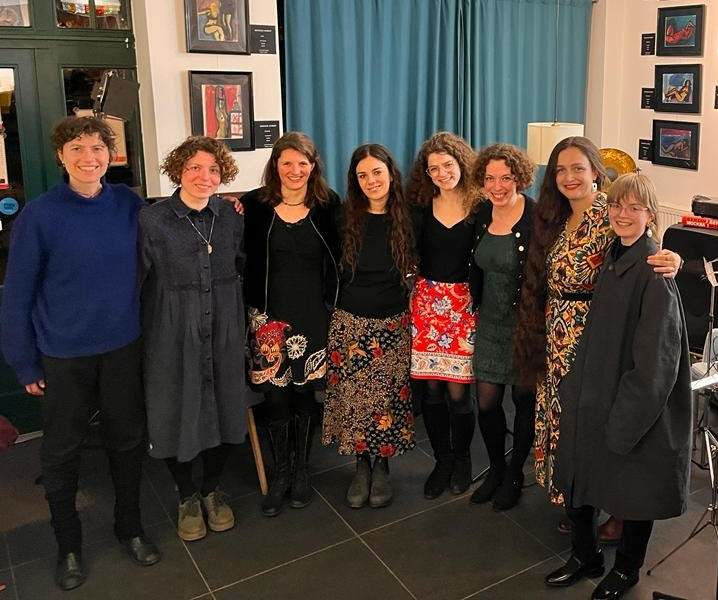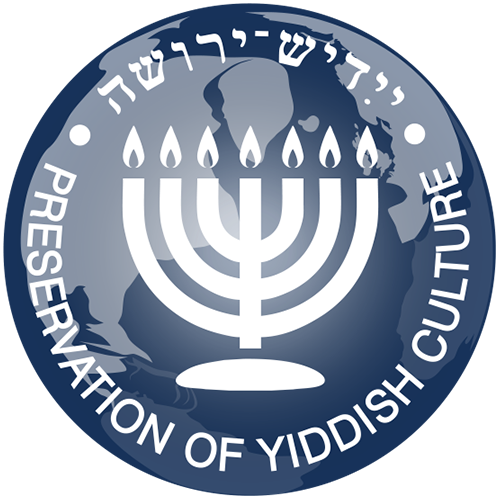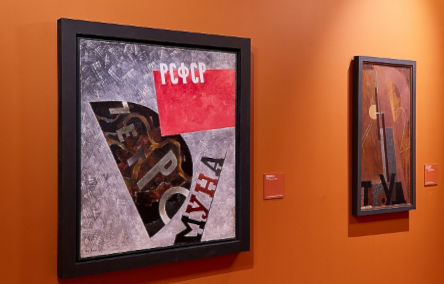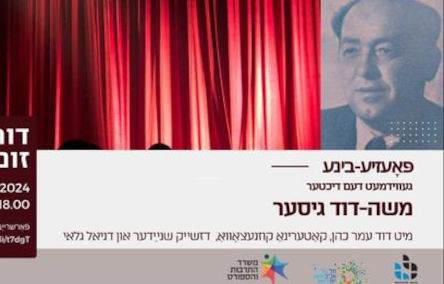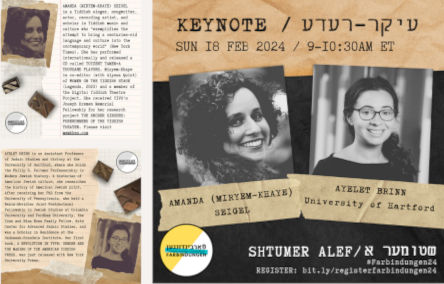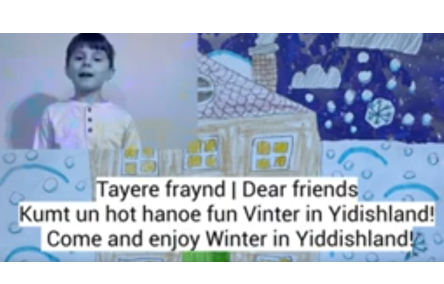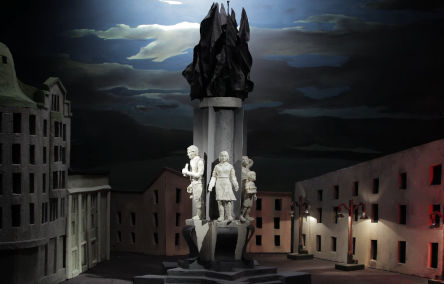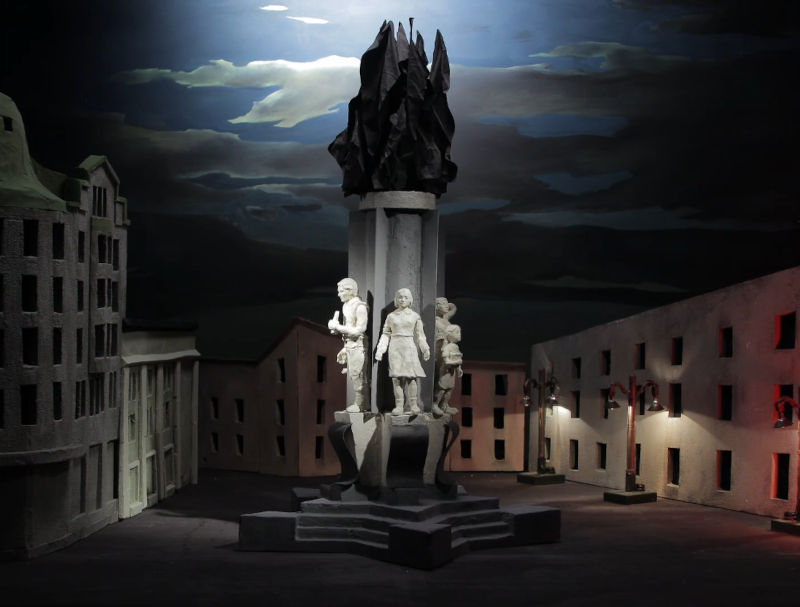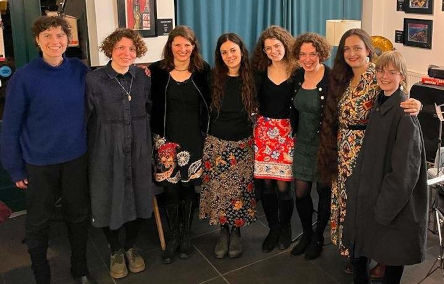
Yiddish Women’s Poems in Berlin
Yiddish Women’s Poems in Berlin
The activist group Yiddish.Berlin celebrated March 8, 2024, the International Women’s Day, by an event highlighting women’s creativity in Yiddish. The participants recited poetry written in this language by women, starting with a poem by the 11-year-old girl Gela, dating back to the beginning of the 18th century. The poets Katerina Kuznetsova (one of the event’s organizers) and Yael Merlini read their own works. The program included a performance of songs written by the famous Yiddish poetess Beyle Schaechter-Gottesman (1920-2013). Iryna Zrobok read Celia Dropkin’s poems translated into Ukrainian. All the recited texts are available on the website of Yiddish.Berlin.
Photo by Jake Schneider
